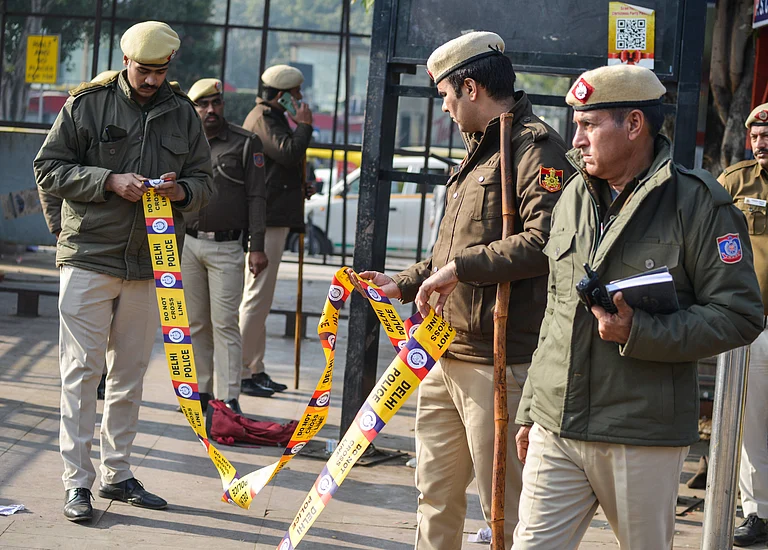
The subgenre of crime storytelling has re-emerged with elderly fighting crime.
These narratives allow the elderly protagonists to prove their worth in ways that society denies them.
The subgenre is an effective counter-argument to our collective ageist thoughts.
The world of fiction has always been obsessed with youth—its energy, its beauty, its potential. If you take one look at the dystopian genre, this motif plays out most superfluously. Older characters are too often relegated to supporting roles: the wise grandparent, the comic curmudgeon, the eccentric neighbour. Rarely do they drive the story forward.
In a capitalist culture, where worth is tied to productivity, the elderly are written out of relevance—their value measured against what they can no longer contribute to the workforce. Against this backdrop, a whole subgenre of crime storytelling has re-emerged that feels slyly subversive and radical: silver sleuths as protagonists.
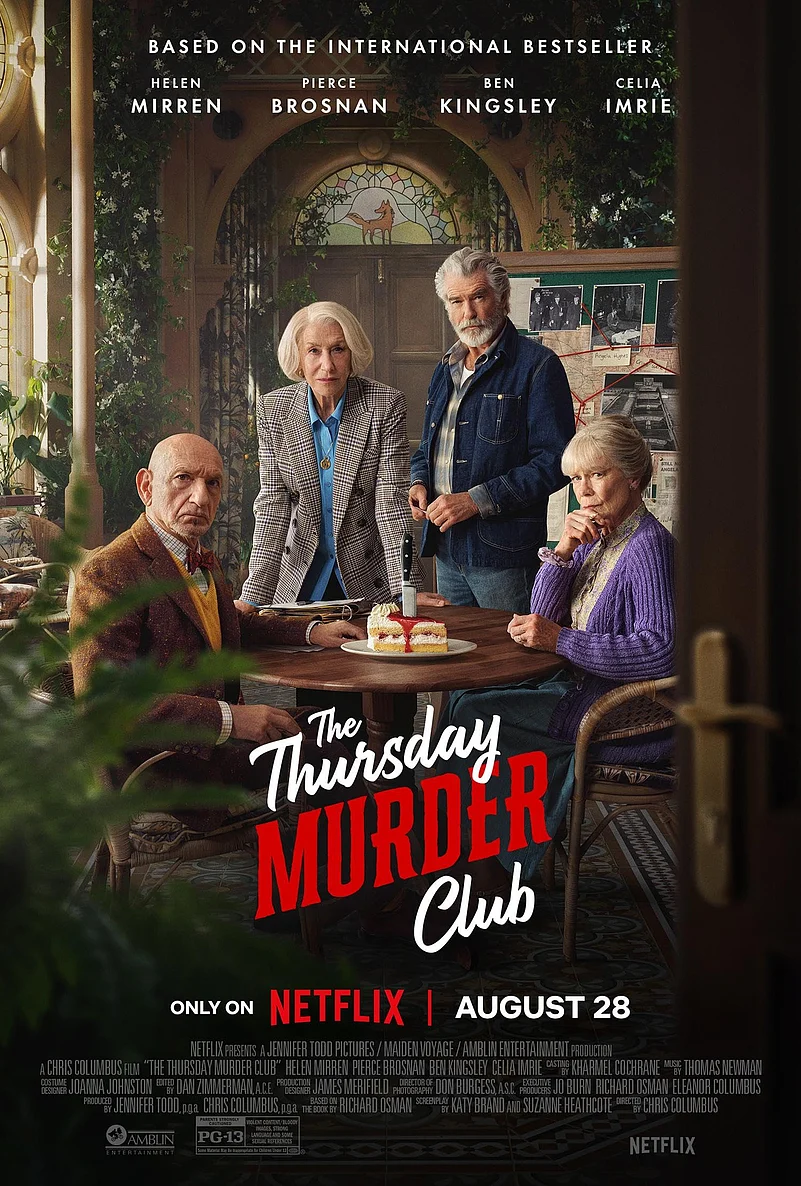
This is what works for The Thursday Murder Club (2025), Chris Columbus’s new adaptation of Richard Osman’s bestselling novel—that and its cast. Alongside films like Thelma (2024) and series like Only Murders in the Building (2021-ongoing), The Thursday Murder Club offers something we need more of: older characters outsmarting criminals and authorities and proving their worth in ways that society denies them. It allows them to reclaim space.
Osman’s book was something of a publishing phenomenon, mixing cosy crime with a gently comic look at life in a retirement village. Its adaptation by Columbus involves four elderly friends—Elizabeth (Helen Mirren), a retired spy; Ron (Pierce Brosnan), a fiery ex-union leader; Ibrahim (Ben Kingsley), a meticulous psychiatrist; and Joyce (Celia Imrie), a former nurse. They meet every Thursday to pore over unsolved crimes. When a local developer (David Tennant) winds up murdered, they promote themselves from solving cold cases to an active one.
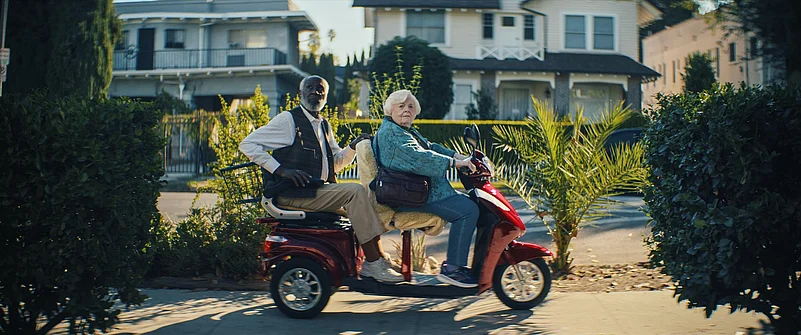
On screen, the film is a star-studded affair, with a cast that seems incapable of phoning it in. But, for all the charisma on display, the film itself is uneven. The screenplay, by Katy Brand and Suzanne Heathcote, struggles to match the fizz of Osman’s novel. The book balanced its central murder mystery with wry humour. But the film feels flatter, as though afraid to fully embrace the gleeful eccentricity of its characters.
Still, even as an average adaptation, it works in the broader context of the genre. There’s something inherently pleasurable in seeing these performers embody people who refuse to be sidelined, who crack jokes, codes, and the nigh unsolvable cases together. It plays on the tropes of ‘found family’ that becomes a cherry on top.
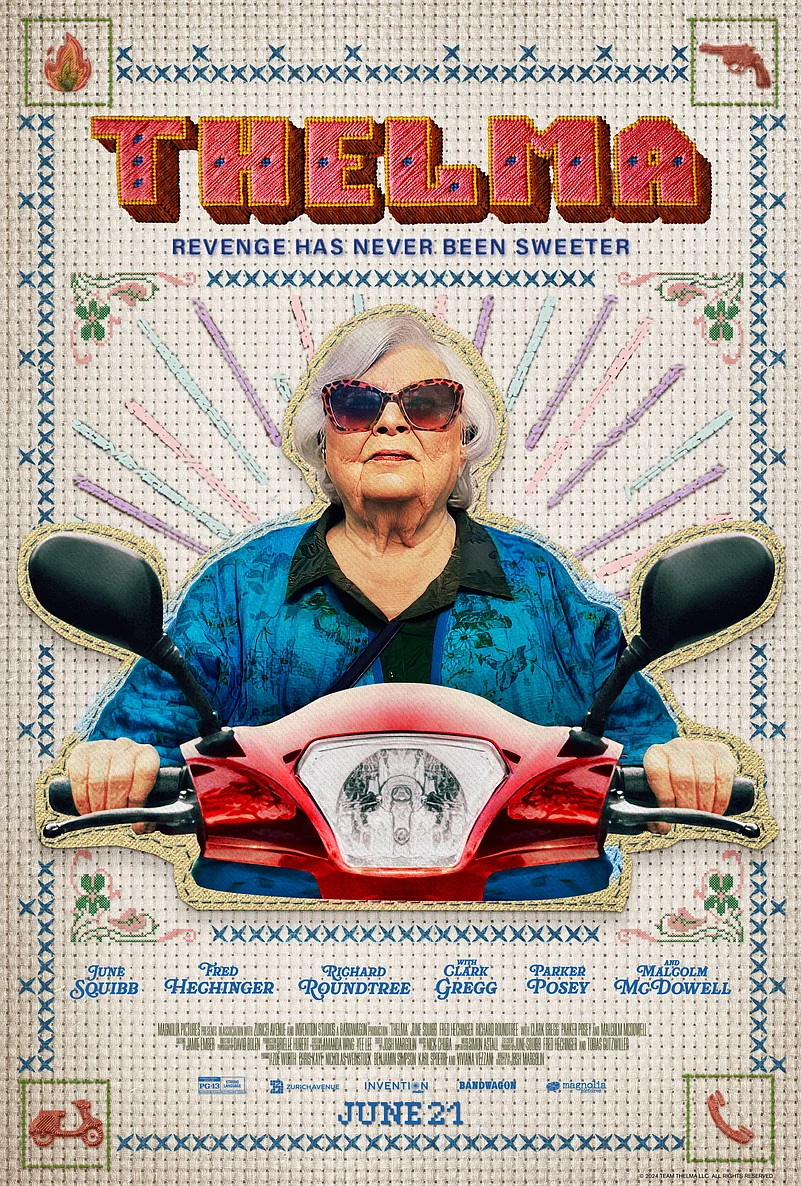
Josh Margolin’s 2024 indie hit is the better film by a margin. It follows Thelma Post, a 93-year-old grandmother (June Squibb in a career-defining role) who, after being scammed out of her savings by a phone con artist, sets out to get her money back. What begins as a small-scale story of victimhood that can easily break your heart, quickly turns into a joyous revenge caper.
Thelma taps into the same thematic well as The Thursday Murder Club. There are the indignities of ageing, the way the elderly are underestimated or dismissed; but it does so with greater verve. Squibb’s Thelma is resourceful, stubborn, and wildly entertaining to follow. Unlike Columbus’s film, which struggles to bottle the anarchic fun of Osman’s pages, Thelma is more delightful—brimming with wit, sorrow, and heart.

It’s also the most effective counter-argument to our collective ageist thoughts. Thelma defies the odds because she wants recognition, autonomy, and the right to still matter. Watching her navigate mobility scooters, family doubts, and her own fears—that too with a slow-growing tumour in her brain—is cathartic because we live in a world that would sooner pity her than see her as the hero who can avenge herself.
Only Murders in the Building shows how much fun the trope can be when stretched across a series. The Hulu (and Disney+) hit stars Steve Martin, Martin Short, and Selena Gomez as an unlikely trio of true-crime podcasters investigating murders in their New York apartment building.
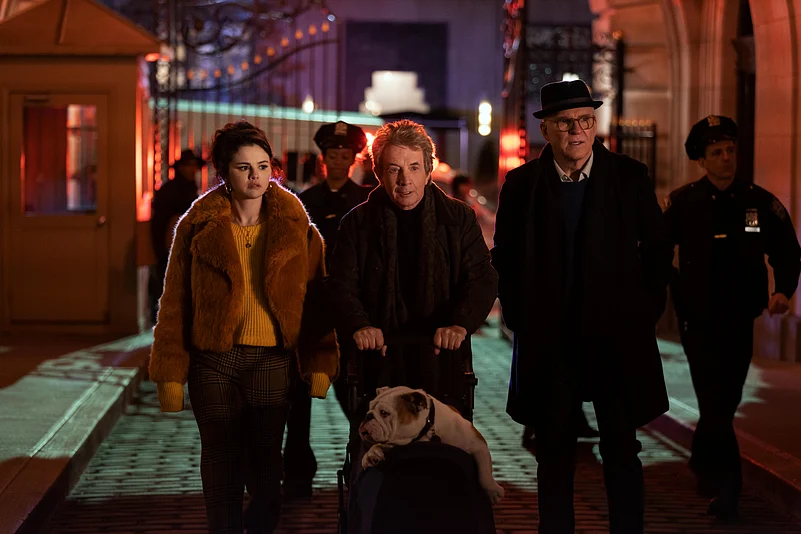
The show plays with generational contrasts—Gomez’s dry Millennial sensibility against Martin and Short’s old-school neuroses. Like The Thursday Murder Club, it’s about people who should, by societal logic, be invisible. But instead of fading into oblivion, they reinvent themselves as amateur detectives. Before season one ends, these has-beens are bonafide internet-era storytellers and relevant once more. The series delights in showing them puzzling over clues and podcast analytics with equal fervour, poking fun at their cluelessness while celebrating their refusal to be left behind.
Be it Thelma, Oliver, or Charles, these characters insist that life doesn’t stop at retirement. That curiosity, mischief, and adventure remain possible, no matter what age you may be. The bones may creak, the brain may get foggy, but there is always some fun to be had even when there is a touch of macabre to it all.

This genre having a moment in the pop culture consciousness is sweeter to a rebellious, ageing Millennial like me. There’s also a touch of rebellion in the very act of sleuthing, after all. And, in an entertainment landscape that discards the old as ruthlessly as society does, fiction like The Thursday Murder Club, Thelma, and Only Murders in the Building offer a refreshing fantasy, if not a corrective.
Debiparna Chakraborty is a film, TV, and culture critic dissecting media at the intersection of gender, politics, and power.











